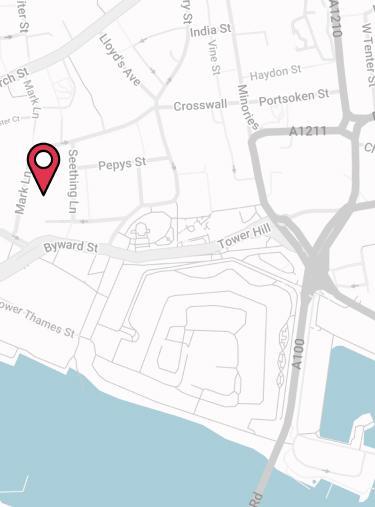
TUPE Transfers and Employee Benefits
According to conciliation service ACAS, TUPE regulations “protect employees’ rights when the organisation or service they work for transfers to a new employer”.
The full name of this set of regulations is the Transfer of Undertakings (Protection of Employment) Regulations 2006. These were updated and amended in 2014 by the Collective Redundancies and Transfer of Undertakings (Protection of Employment) (Amendment) Regulations 2014.
There are two main situations when TUPE regulations may apply. They are split out into business and service provision transfers:
- Business transfers
Involve a business or part of a business moving to a new owner or merging with another business to make a brand new employer. - Service provision transfers
Apply where there is a change in the delivery of the service between contractor(s) and / or a client. This could be outsourcing, in-sourcing or re-tendering.
What are TUPE Regulations?
The TUPE regulations see employees of a previous employer automatically become employees of a new employer at the point of transfer.
These new workers keep all of their previous employment terms, conditions and rights, as well as their continuous service history. They should therefore continue to enjoy the same employment terms as under the old employer.
How Long Does TUPE Last After A Transfer?
Usually, the answer is indefinitely. The regulations prohibit any harmonisation of terms and conditions between new and existing employees if the sole or principal reason for the change is the transfer.
This might lead to a situation where, after a transfer, the new employer finds that they have employees working for them with very different terms and conditions.
Preparing For A TUPE Transfer
Employers must inform / consult with employees through “appropriate” elected representatives. If there’s a trade union, this usually includes representatives from the union. Where there’s no trade union, employees typically vote for representatives from among their colleagues to do the job.
Employers must give certain information about the transfer in writing. This includes:
- That the transfer is taking place, why it is taking place, and approximately when it is happening.
- Any social, legal or economic implications for the affected employees, e.g. a working location change or risk of lay-offs.
- Any measures that both the ‘old’ (outgoing) employer and the ‘new’ (incoming) employer expect to take regarding their employees, even if this is no measures at all.
- The outgoing employer must provide information about any measures which the incoming employer is considering taking in respect of affected employees.

The emphasis when undertaking a TUPE transfer is on dialogue between the employers (old and new) and the employees.
Although much of this dialogue is a legal requirement, it’s important to really make sure the workforce on both sides of the transfer are as engaged as possible. This will help ensure a smooth transfer process.
Nadeem Farid
Head of Employee Benefits at Drewberry
What’s Transferrable Under the Regulations?
- Terms and conditions of employment
E.g. pay, commission, bonuses, allowances, overtime pay, sick leave and pay and holiday leave, including holiday carry-over arrangements and contractually-enhanced annual leave. - Insurance-based benefits
E.g. Group Income Protection, Group Life Insurance, or Group PMI. - Certain pensions and early retirement
Existing early retirement provisions may transfer over. The new employer should handle these just as the old employer would have done. While there may not always be a legal requirement to transfer pension rights over exactly, the law is complicated. Employers should therefore seek specialist advice. - Continuity of employment
All previous continuous employment under the old employer will transfer to the new employer. - Financial obligations and liabilities
E.g. arrears of pay or unpaid bonuses. This might occur where the old employer would pay a bonus for the previous tax year at the start of the new tax year. This would make the new employer liable for the bonus the previous employer would have paid. - Discipline and grievance records
The outgoing employer must provide records of active disciplinary and grievance procedures for the 2 years leading up to the transfer to the incoming employer. - Court claims
Existing / potential employment tribunal or court claims, or any other outstanding claims against the outgoing employer. - Restrictive covenants
Providing that the covenant is still relevant and enforceable post-transfer, the TUPE regulations move these, also.
Can I Reduce Transferrable Benefits?
This is a very difficult area. The answer depends largely on whether the benefits are ‘contractual’. This means they’re written into the employees’ contracts and form an intrinsic part of their working rights.
If so, it’s not generally possible to reduce benefits, such as Company Health Insurance, after a TUPE transfer. This applies even where it may be expensive to provide these benefits and where you don’t offer such benefits to existing staff.
Removing a contractual benefit could, if the employee can prove that it was a sole or principal consequence of the transfer, be deemed unfair. This could allow the employee to resign and make a claim for constructive unfair dismissal.
What About Discretionary Benefits?
Other benefits are ‘discretionary’. This means employees’ contracts give you the power to vary or remove them. If so, you may be able to reduce such benefits. However, you should think carefully before doing so. It could significantly impact the morale and productivity of the new staff members.
Moreover, even where there is no contractual breach, the proposed withdrawal of a benefit resulting in a substantial change to working conditions to an employee’s material detriment may entitle an employee to treat themselves as dismissed under clause 4(9) of TUPE.
Such a claim is similar to a standard constructive unfair dismissal claim, although there is no need to establish a fundamental breach.
TUPE Transfers & Employee Benefits Advice
At Drewberry, we’re experienced in offering TUPE transfer advice. For help transferring over your new employees’ existing insurance or pension rights, pop us a call on 02074425880. We can organise suitable cover that meets your company’s TUPE obligations.
Why Speak to Us?
Employee benefits can be a headache. But our specialists do this day-in, day-out, offering first class service when you need it most. Here’s why you should talk to us:
- Award-winning independent employee benefits consultants, working with leading UK insurers and benefit providers
- Assigned specialist on hand to help – every step of the way
- 4100 and growing independent client reviews rating us at 4.92 / 5
- Authorised and regulated by the Financial Conduct Authority. Find us on the financial services register
- Claims support when you need it most.
Contact Us
125-135 Preston Road
Brighton
BN1 6AF
Cookies
Drewberry™ uses cookies to offer you the best experience online. By continuing to use our website you agree to the use of cookies including for ad personalization.
If you would like to know more about cookies and how to manage them please view our privacy & cookie policy.








